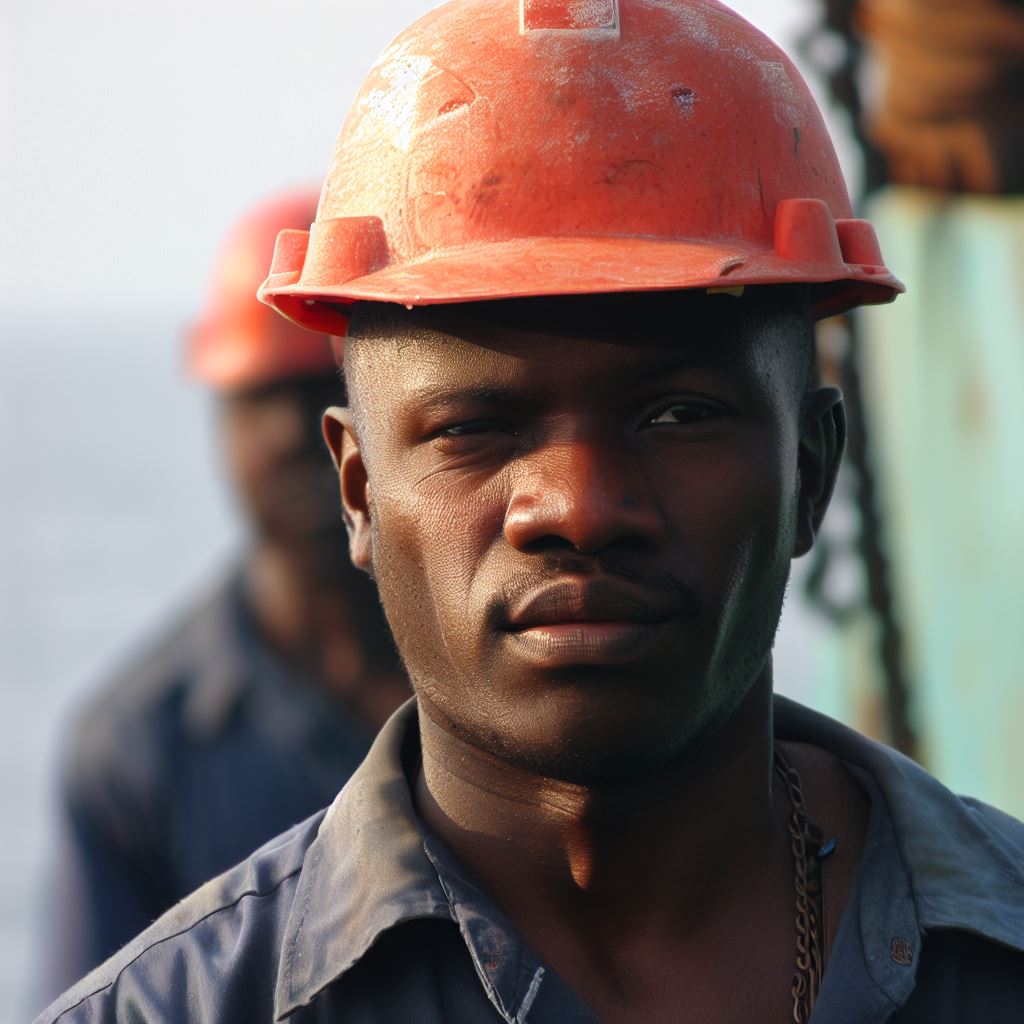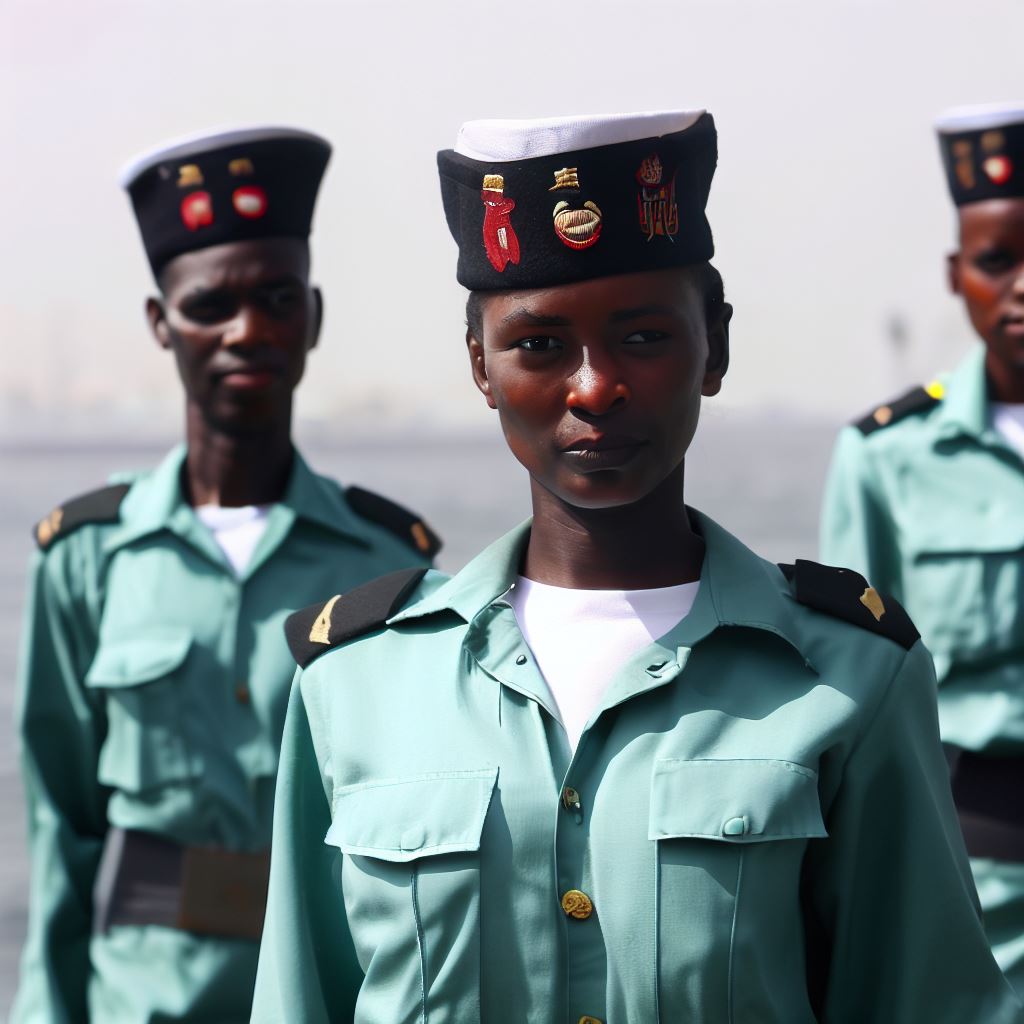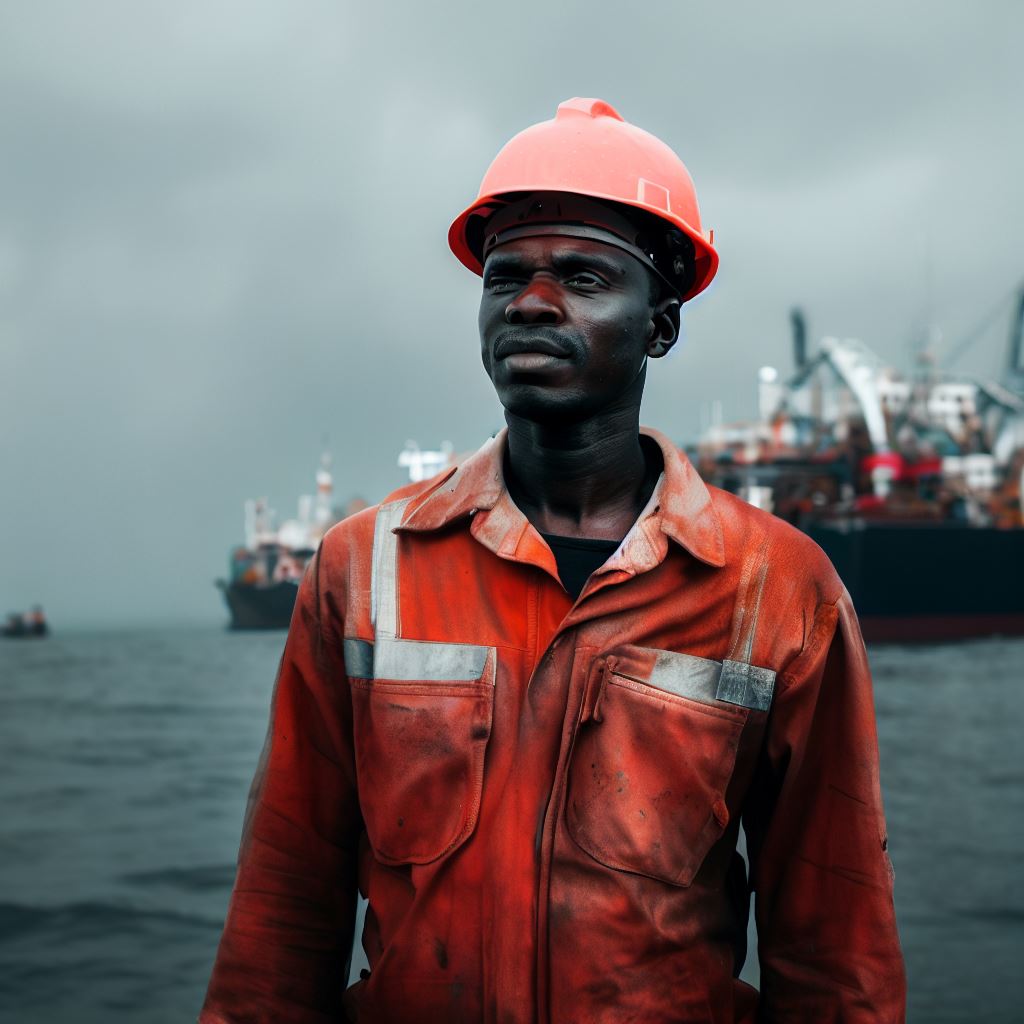Introduction
Maritime unions are organizations that represent sailors and oilers and are vital for their welfare and rights.
Nigeria’s maritime industry plays a significant role in its economy, contributing to trade and employment.
Unionizing sailors and oilers in Nigeria is crucial for safeguarding their interests and improving working conditions.
Maritime Unions Defined Maritime unions are vital organizations representing sailors and oilers, ensuring their rights, safety, and fair treatment.
Nigeria’s Maritime Industry Nigeria’s maritime sector is a critical part of its economy, handling vast imports and exports, requiring skilled sailors and oilers.
Unionizing Significance
- Protecting Rights: Maritime unions safeguard the rights of sailors and oilers, advocating for fair wages, safe working conditions, and proper training.
- Safety Assurance: Ensuring safety protocols are followed to prevent accidents and environmental disasters in Nigeria’s coastal waters.
- Negotiating Power: Unions negotiate on behalf of their members, ensuring their voices are heard in the industry.
- Career Advancement: Offering opportunities for career growth, skill development, and education in maritime professions.
- Strengthening the Industry: By maintaining a skilled and well-treated workforce, maritime unions contribute to the industry’s growth and stability.
- National Economy: The maritime sector plays a substantial role in Nigeria’s GDP, and unionized sailors and oilers help maintain its strength.
In summary, maritime unions are essential for safeguarding the rights, safety, and career development of sailors and oilers in Nigeria’s thriving maritime industry.
Their role in preserving this vital sector and contributing to the national economy cannot be overstated.
Historical Context of Maritime Unions in Nigeria
Brief history of early unionization efforts in Nigeria
During the early years, sailors and oilers in Nigeria faced significant challenges as they lacked representation and struggled with poor working conditions and exploitation.
However, in response to these hardships, efforts to form unions began to emerge, aiming to advocate for the rights and welfare of maritime workers.
These early unionization efforts were often met with resistance from both employers and the Nigerian colonial government, which viewed them as a threat to their interests.
Nevertheless, these initial steps towards collective bargaining laid the foundation for the establishment of maritime unions in Nigeria.
Challenges faced by sailors and oilers prior to unionization
Prior to the formation of maritime unions in Nigeria, sailors and oilers faced numerous challenges, including low wages, long working hours, inadequate safety measures, and limited access to healthcare.
They were often subjected to exploitative working conditions, with little or no recourse for their grievances.
These challenges not only affected their individual well-being but also had broader implications for the country’s maritime industry, hindering its growth and development.
Without a unified voice to advocate for their rights, sailors and oilers struggled to improve their working conditions and uplift their socio-economic status.
Major milestones in the formation of maritime unions
The formation of maritime unions in Nigeria marked significant milestones in the fight for the rights of sailors and oilers.
One of the major breakthroughs occurred in [year], when the [Union Name] was established as the first official union representing maritime workers.
This marked the beginning of collective bargaining and a platform for sailors and oilers to address their concerns regarding wages, working hours, and safety standards.
In [year], another crucial milestone was reached with the merging of different maritime worker unions to form the [Union Name], consolidating the collective strength and amplifying the voice of maritime workers.
These milestones not only improved the workers’ conditions but also enhanced the overall professionalism and efficiency of the maritime industry in Nigeria.
In essence, the historical context of maritime unions in Nigeria highlights the journey from early unionization efforts to the establishment of organized bodies advocating for the rights and welfare of sailors and oilers.
The challenges faced by maritime workers prior to unionization underscored the vital need for collective representation and resulted in significant milestones in the formation of maritime unions in Nigeria.
Read: Marine Laws and Regulations: What Sailors Need to Know
Role and Functions of Maritime Unions in Nigeria
Protection of workers’ rights and interests
Maritime unions in Nigeria play a crucial role in safeguarding the rights and interests of sailors and oilers. They act as a collective voice for employees in the maritime industry, ensuring their concerns are heard.
Maritime unions in Nigeria serve as essential pillars in the industry’s ecosystem. They provide a unified platform for workers to address their grievances and collectively seek fair treatment.
Negotiation of better wages, working conditions, and benefits
One of the primary functions of maritime unions is to negotiate with employers on behalf of their members to secure fair wages, improved working conditions, and better benefits.
These negotiations aim to establish equitable terms of employment.
These unions function as intermediaries between employees and employers, fostering dialogue and negotiation for improved working conditions, wages, and benefits.
This ensures that the rights and interests of workers are protected and upheld.
Advocacy for safety standards and regulations
Maritime unions also advocate for the enforcement of safety standards and regulations in the industry.
They work closely with relevant authorities to ensure that ships and maritime workplaces adhere to the necessary safety guidelines, minimizing risks to workers.
Furthermore, maritime unions play a vital role in advocating for safety standards and regulations.
They work tirelessly to ensure that ships and maritime workplaces comply with necessary safety guidelines, reducing the risks faced by workers at sea.
Promoting professional development and training opportunities for members
Another significant role of maritime unions is to promote professional development and training opportunities for their members.
They recognize the importance of continuous learning and skill enhancement in the ever-evolving maritime sector.
By organizing training programs, workshops, and seminars, unions ensure that their members stay updated with the latest industry practices, technologies, and regulations.
This empowers workers to perform their duties efficiently and enhances their career prospects.
Moreover, these unions actively promote the professional development and training of their members.
By organizing training programs and facilitating skill-enhancement opportunities, they empower their members to grow professionally and contribute effectively to the maritime industry.
In summary, the role and functions of maritime unions in Nigeria are multi-faceted.
They protect workers’ rights, negotiate for better wages and working conditions, advocate for safety standards, and promote professional development.
The continuous efforts of these unions contribute to the growth and welfare of sailors and oilers in the Nigerian maritime industry.
Read: Tank Car Loaders in Nigeria: Skills, Pay, and Prospects
Major Maritime Unions in Nigeria
National Union of Seamen of Nigeria (NUS)
The National Union of Seamen of Nigeria (NUS) is one of the major maritime unions in the country.
Formed with the aim of protecting the rights and welfare of sailors and oilers, NUS has been instrumental in improving the working conditions of its members.
Seafarers’ struggles, marked by exploitation and injustice, led to the official establishment of NUS in Nigeria in 1977.
The union actively advocated for seamen and oilers, securing fair wages and respectful treatment.
NUS boasts a significant membership base, representing seafarers and oilers across Nigeria.
Through its vast network, the union has been able to effectively voice the concerns and demands of its members to the relevant authorities and stakeholders in the maritime industry.
Over the years, NUS has achieved notable milestones in its fight for seafarers’ rights.
The union successfully negotiated higher wages for its members, improving their economic well-being and standard of living.
Additionally, NUS has actively campaigned for better safety measures and enhanced working conditions on ships, reducing the risk of accidents and injuries.
Continuing its commitment to the welfare of seafarers, NUS is currently engaged in various ongoing initiatives.
These initiatives include providing capacity-building programs to empower its members with relevant skills and knowledge to excel in their professions.
NUS also collaborates with international maritime organizations to address global issues affecting seafarers and oilers.
Maritime Workers Union of Nigeria (MWUN)
The Maritime Workers Union of Nigeria (MWUN) is another prominent labor union within the Nigerian maritime sector. It represents a diverse range of workers employed in various maritime-related industries.
With its roots dating back to the pre-independence era, MWUN was officially established in 1951. The union played a vital role in uniting maritime workers and advocating for their rights and interests.
MWUN’s establishment marked a significant milestone in ensuring fair treatment and improved working conditions for maritime workers in Nigeria.
MWUN’s membership comprises a wide array of workers, including dockworkers, stevedores, and other employees in port operations.
The union’s scope extends beyond seafarers and oilers, encompassing the entire spectrum of workers involved in the maritime industry.
Throughout its history, MWUN has undertaken notable initiatives that have had a significant impact on the lives of maritime workers.
The union has successfully negotiated improved wages and benefits for its members, contributing to their economic stability.
Additionally, MWUN actively engages in the implementation of social welfare schemes, such as health insurance coverage and pension schemes, to provide social security to its members.
MWUN has also been at the forefront of addressing the challenges faced by maritime workers, particularly issues related to job security, safety, and training.
The union collaborates with government agencies and maritime stakeholders to develop and enforce regulations that protect the rights and well-being of its members.
In fact, the National Union of Seamen of Nigeria (NUS) and the Maritime Workers Union of Nigeria (MWUN) are two significant maritime unions in Nigeria.
Through their efforts, these unions have been instrumental in improving the lives of sailors, oilers, and other maritime workers.
Their achievements and ongoing initiatives serve as a testament to their dedication in safeguarding the rights and welfare of workers within the maritime industry.

Challenges Faced by Maritime Unions in Nigeria
Lack of recognition and cooperation from industry stakeholders
- Unions struggle to gain acknowledgement and support from key players in the maritime sector.
- Industry stakeholders often view unions as disruptive and a hindrance to their operations.
- This lack of recognition limits the unions’ ability to address crucial issues effectively.
- Without cooperation, maritime unions face an uphill battle in advocating for their members’ rights.
Inadequate funding and internal resource management
- Maritime unions in Nigeria often face financial constraints, hindering their activities and services.
- Insufficient funding limits their ability to hire qualified staff and adequately represent their members.
- Poor internal resource management exacerbates the issue, leading to wastage and inefficiencies.
- To overcome this challenge, unions must find ways to secure sustainable funding and improve resource utilization.
Resistance to change and conservative work culture
- The maritime industry in Nigeria has a deeply ingrained conservative work culture.
- Workers and some union members resist changes that could improve their working conditions.
- This resistance to change hampers unions’ efforts to introduce reforms and negotiate better agreements.
- Addressing this challenge requires unions to foster awareness, educate members, and promote the benefits of change.
Legal limitations and constraints
- Maritime unions in Nigeria face legal limitations and constraints imposed by legislation.
- These constraints restrict their ability to protect workers’ rights and negotiate favorable terms.
- Unfair labor laws favor employers, undermining the unions’ bargaining power.
- To overcome this challenge, unions must engage in advocacy efforts to influence legislation in their favor.
In brief, challenges like industry stakeholders’ non-recognition, limited funding, conservative work culture, and legal constraints hinder maritime unions’ effectiveness.
Addressing these obstacles can strengthen Nigeria’s maritime industry.
Read: Safety Protocols for Marine Oilers in Nigeria: A Guide
Case Studies: Successful Unionization Efforts in Nigeria
Improved working conditions through union negotiations
Sailors and oilers in Nigeria have successfully improved their working conditions through the efforts of maritime unions.
By engaging in negotiations with employers, the unions have been able to secure better wages, reasonable working hours, and improved safety measures.
Through collective bargaining, the unions have ensured that their members are treated fairly and have a better quality of life.
Impact of maritime unions on safety measures
The presence of maritime unions in Nigeria has had a significant impact on safety measures within the industry.
Through their advocacy and activism, unions have been successful in pushing for stricter safety regulations and the enforcement of these measures.
The maritime sector has reduced accidents and injuries, creating a safer work environment for sailors and oilers.
The unions’ efforts have saved lives and protected the well-being of workers.
Advocacy for fair wages and benefits
Maritime unions in Nigeria actively advocate for fair wages, healthcare, retirement plans, and paid leave for their members.
They successfully address wage disparities, ensuring equitable compensation. Case studies showcase their impactful unionization efforts in the maritime sector.
Through negotiations and collective bargaining, unions improve working conditions, safety, and compensation.
Maritime unions assertively protect sailors’ and oilers’ rights and well-being in Nigeria.
Read: Recruitment and Training for Marine Oilers in Nigeria
Future Prospects and Conclusion
The maritime unions in Nigeria have the potential for further growth and increased influence. Continued collective bargaining and advocacy efforts are crucial for the unions’ success.
The key takeaways from this blog post highlight the importance of unionizing sailors and oilers in Nigeria’s maritime industry.




